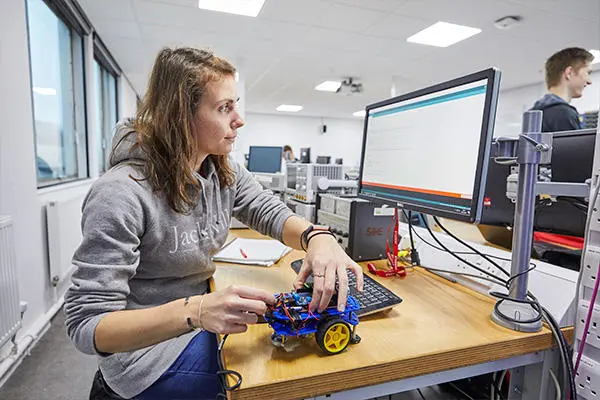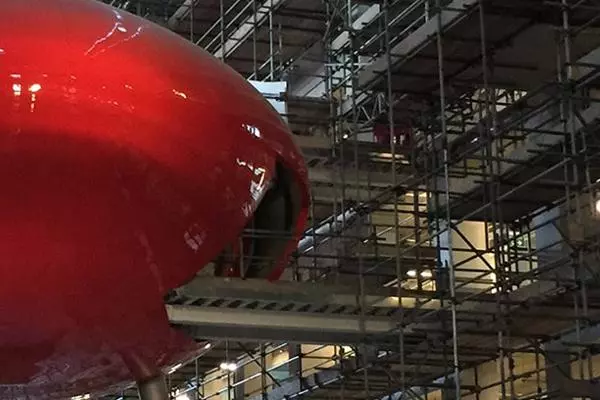George Miller works at QinetiQ and is in the final year of his Embedded Electronic Systems Design and Development Engineer (Degree) Apprenticeship, attending Solent University twice a week. He mostly works in avionics, supporting various teams that perform independent technical evaluations on big and small aircraft, both rotary and fixed-wing. He shares his degree apprenticeship experience with us.
What were you doing before your apprenticeship and why did you think this would work for you?
As soon as I discovered the existence of degree apprenticeships, I was intrigued. In my final year of college, while pursuing a Level 3 BTEC Extended Diploma in Engineering, I began exploring options for my next steps. Unlike my peers who were mostly eyeing jobs or HNC courses, I found myself drawn towards the prospect of university. The degree apprenticeship emerged as an ideal blend of academic learning and industry experience.
Given my non-traditional educational background, I anticipated some scepticism from employers and universities regarding my academic capabilities. BTEC and other vocationally based Level 3 courses are often perceived as being less academically rigorous compared to A-levels. While some employers were initially unfamiliar with the BTEC qualification, many recognised its value, especially since BTEC qualifications come with UCAS points and, depending on the modules studied (such as advanced calculus), are academically substantial.
Initially, I harboured doubts about my ability to succeed in this new environment. However, these concerns quickly dissipated once I began engaging with the assessments, particularly report writing. I found that my BTEC background, which included extensive technical report writing and math exams, gave me an edge in the engineering degree. From my perspective and experience, the Level 3 BTEC is exceptionally well-suited to preparing students for the rigours of an engineering degree. It offers extensive practice in technical writing, adherence to deadlines, and a blend of practical and theoretical group work. This, I believe, equips BTEC students with a distinct advantage in pursuing engineering at a higher education level.
Tell us about the benefits of studying your apprenticeship
There are loads, but the points that stick out for me include personal and professional development.
I’ve been getting actual industry experience by building my technical skills, understanding workplace dynamics, and gaining insights that are not typically available in a classroom setting. Through the apprenticeship, I have had opportunities to expand my professional networks through access to conferences and events at a reduced cost or even for free, thanks to student discounts. These gatherings have been fantastic opportunities to connect with an incredibly diverse range of professionals.
I’ve also gained an awareness and knowledge of other areas, benefited from the early careers community, and had tailored career progression.
In terms of personal development, I’ve built my confidence, learnt from mistakes, and understand the human aspect of working with others. I’m not just gaining experience, but also moving forward in a way that aligns with my career aspirations and industry needs.
















